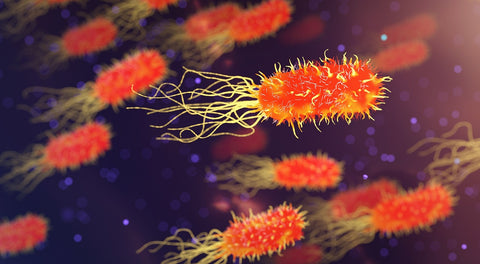This comprehensive exploration delves into the intricate nexus between sleep, anxiety, concentration, and the pivotal role of melatonin. We begin by understanding how sleep, often underestimated, is the cornerstone of mental clarity and emotional stability. The relationship between anxiety and sleep is bi-directional, where each can exacerbate the other, leading to a cascade of cognitive disruptions. Concentration, a pillar of cognitive prowess, is significantly influenced by the quality of our sleep, underscoring the symbiotic relationship between the mind and body. The hormone melatonin emerges as a silent regulator, guiding our sleep-wake cycles and ensuring restful nights. Its production, influenced by both environmental and dietary factors, serves as a testament to the delicate balance nature maintains. In conclusion, sleep isn't merely a nightly routine but a central element of holistic health, demanding our respect and attention. By understanding and aligning with its rhythms, we unlock the potential for a life imbued with balance, clarity, and wellness.
Introduction:
Sleep, a state often enveloped in mystery, is more than just a nightly ritual or a mere reprieve from the day's fatigue. It's a complex physiological process, a restorative haven that allows our bodies and minds to rejuvenate. However, like a ripple in a serene pond, disturbances such as anxiety can disrupt this natural cycle, leading to cascading effects on our cognitive functions, particularly concentration. At the epicenter of this intricate relationship is melatonin, a hormone often hailed as the 'nighttime messenger', orchestrating our sleep-wake patterns.
In today's fast-paced world, where screen time has surged and stressors are manifold, understanding this delicate dance between sleep, anxiety, and concentration becomes paramount. It's not just about ensuring a good night's rest; it's about comprehending the profound impact of these interlinked facets on our overall well-being.
So, join us as we delve deep into this nexus, unraveling the science, understanding the disruptions, and offering insights into restoring balance in this complex interplay. Whether you're a night owl trying to reset your internal clock or someone grappling with anxiety-induced insomnia, this exploration promises insights that could transform your nights and, by extension, your days.
The Science of Sleep:
Sleep, often enveloped in poetic allure, is more than just the body's way of signing off after a long day. It's a dynamic, multi-phase journey that plays host to a myriad of vital functions. Every night, as we close our eyes and drift off, our bodies transition through distinct stages, each contributing to our health in unique ways.
-
The Sleep Stages:
- NREM (Non-Rapid Eye Movement): This phase is subdivided into three stages. It begins with the drowsiness of N1, transitions to light sleep in N2, and culminates in the deep, restorative N3 stage where the body undergoes physical repair.
- REM (Rapid Eye Movement): Often associated with vivid dreams, REM sleep is where the brain is almost as active as when awake. It's crucial for memory consolidation and mood regulation.
-
Restorative Functions: During the deep stages of sleep, especially N3, the body gets busy with maintenance work. Cell growth and repair occur, energy stores are replenished, and the immune system strengthens itself. Think of this as the body's in-built service and maintenance routine, ensuring optimum functionality.
-
Cognitive and Emotional Well-being: Sleep isn't just a physical necessity. The brain uses this time to organize thoughts, process emotional experiences, and consolidate memories. Ever wondered why a problem seems more solvable after a good night's sleep? It's because the brain has had the time to process information, approach it from various angles, and offer fresh perspectives.
-
Sleep's Hormonal Ballet: Several hormones are in play during our sleep. Growth hormone, essential for growth and cell repair, is released. Cortisol, the stress hormone, sees a dip at bedtime and a surge closer to wake time, acting as a natural alarm clock. And of course, there's melatonin, signaling the body that it's time to rest.
Understanding these intricate processes offers a renewed appreciation for sleep. It's not mere downtime; it's a holistic wellness practice that we engage in nightly, even if unconsciously. The next time you hit the snooze button, remember: you're allowing your body and brain a few more moments of this essential restoration.
Anxiety's Influence on Sleep:
The relationship between anxiety and sleep is a complex dance of cause and effect. Anxiety, with its hallmark symptoms of restlessness, worry, and heightened alertness, poses a direct challenge to the very essence of sleep—peace, rest, and rejuvenation. Delving into the intricate web of this relationship, we uncover the profound ways anxiety can shape our nights.
-
The Sleep-Anxiety Feedback Loop: At its core, anxiety disrupts the tranquility needed for restful sleep. But this disruption isn't one-sided. Poor sleep can amplify feelings of anxiety, creating a feedback loop where one perpetuates the other. This cycle can be particularly vicious, making interventions crucial.
-
Stress Hormones and Sleep: The body responds to anxiety by releasing stress hormones like cortisol. This natural alarm system prepares us to face potential threats (a throwback to our ancient 'fight or flight' response). However, in the modern world, where perceived threats are more psychological than physical, this response can be maladaptive. Elevated cortisol levels, especially in the evening, can inhibit the secretion of melatonin, delaying the onset of sleep and reducing its quality.
-
Restless Mind, Restless Nights: Anxiety often manifests as racing thoughts. This mental restlessness can make it challenging to switch off and drift into slumber. Those with anxiety might find themselves replaying events, ruminating on past interactions, or feeling apprehensive about the future, keeping the brain in a state of high alert.
-
Physical Symptoms of Anxiety: Beyond the psychological, anxiety can manifest physically. Symptoms like palpitations, shortness of breath, or sweating can make relaxation difficult. These symptoms, when experienced at night, can further disrupt the sleep onset process.
-
Anxiety Disorders and Insomnia: Chronic insomnia, characterized by prolonged difficulty falling asleep or staying asleep, is often linked to anxiety disorders. Generalized Anxiety Disorder (GAD), Panic Disorder, and Post-Traumatic Stress Disorder (PTSD) have all been associated with sleep disturbances.
Recognizing the profound interplay between anxiety and sleep is the first step in addressing it. By understanding the root causes and manifestations, individuals can seek targeted interventions, whether therapeutic, lifestyle-based, or pharmacological, to break the cycle and reclaim restful nights.
Concentration and Sleep Deprivation:
The mind, akin to a finely tuned instrument, relies on a delicate balance of factors to operate at its peak. Among these, sleep holds a paramount position. The bridge between adequate sleep and cognitive prowess, especially concentration, is well-established and supported by a plethora of scientific evidence. Let's unravel this connection.
-
The Cognitive Cost of Sleep Deprivation:
- Reduced Alertness: One of the most immediate impacts of a sleep-deprived night is diminished alertness. Studies have shown that even a minor reduction in sleep, say an hour or two less than the recommended 7-9 hours for adults, can result in a drop in alertness by up to 33%.
- Impaired Memory: Sleep is when our brain consolidates memories, processing and storing information from the day. Deprive it of this time, and memory consolidation suffers. The brain's ability to access stored memories also becomes sluggish, leading to forgetfulness.
- Decision-making & Problem-solving: Tasks that demand logical reasoning, complex decision-making, or creative problem-solving become arduous when sleep is compromised. The brain's processing speed slows, and the ability to think "outside the box" dwindles.
-
The Emotional Toll: Beyond just cognitive functions, sleep deprivation can wreak havoc on our emotional equilibrium. There's a heightened sensitivity to negative emotions, reduced capacity for empathy, and even an increased propensity for risk-taking behaviors.
-
The Brain's Cleanup Crew: The Glymphatic System, a waste-clearance mechanism in the brain, is most active during deep sleep. It's responsible for flushing out toxins and waste products that accumulate during waking hours. Sleep deprivation impedes this cleansing process, potentially contributing to cognitive decline over time.
-
The Adverse Feedback Loop: Just as with anxiety, there's a feedback loop at play here. Poor concentration and cognitive function due to sleep deprivation can lead to stress and frustration, which, in turn, can contribute to sleep disturbances in subsequent nights.
-
Long-term Impacts: Chronic sleep deprivation doesn't just result in momentary lapses in concentration. Over time, it can contribute to more significant cognitive deficits and has been linked to an increased risk of neurodegenerative diseases like Alzheimer's.
To underscore the importance of sleep for cognitive health, consider this analogy: Just as a computer needs regular reboots to function efficiently, our brains need consistent, restful sleep to maintain optimal cognitive performance. Skimping on sleep doesn't just rob us of rest—it compromises our ability to think clearly, make decisions, and stay focused.
Melatonin: Nature's Sleep Regulator:
Nature, in its infinite wisdom, has gifted us with melatonin, a hormone that acts as the maestro orchestrating our sleep-wake cycles. It's the linchpin in the delicate balance between wakefulness and rest, guiding us into slumber when darkness falls and nudging us awake with the first light. Delving deeper into melatonin's role reveals not just its significance in sleep but its broader impact on our health.
-
Melatonin's Production and Function:
- Source: Produced by the pineal gland located deep within our brain, melatonin's secretion is influenced by light. Darkness stimulates its production, signaling the body that it's time to wind down.
- Regulating the Biological Clock: Melatonin sets the rhythm for our internal body clock, also known as the circadian rhythm. By doing so, it not only governs sleep patterns but also influences hormonal release, body temperature, and digestion.
-
Melatonin and Sleep:
- Sleep Onset: Elevated levels of melatonin make us feel sleepy and prepare our bodies for rest. It doesn't knock us out like a sedative; instead, it eases us into a restful state.
- Sleep Quality: Apart from initiating sleep, melatonin plays a role in maintaining uninterrupted sleep throughout the night, ensuring we get both the quantity and quality of rest we need.
-
External Factors Influencing Melatonin:
- Light Exposure: Artificial light, especially blue light from screens, can suppress melatonin production. This is why screen time before bedtime is often linked to difficulty falling asleep.
- Diet: Some foods, like tomatoes, olives, and grapes, contain melatonin. While they may not replace the body's natural production, they can offer a boost.
- Age: Melatonin levels typically decrease with age. This decrease might explain why older individuals often experience changes in sleep patterns.
-
Melatonin Supplementation:
- For Sleep Disorders: Melatonin supplements are frequently used to treat certain sleep disorders, like jet lag or shift work sleep disorder. They can help reset the body's internal clock in these situations.
- Safety and Dosage: While melatonin is natural, supplementation should be approached with caution. It's essential to start with a low dose and consult a healthcare professional, especially when used long-term.
-
Beyond Sleep: Emerging research suggests melatonin's role extends beyond sleep. Its antioxidant properties can combat oxidative stress, and it may offer protection against certain diseases, including some forms of cancer.
In essence, melatonin is the silent guardian of our nights, ensuring we slip into slumber with ease and wake up refreshed. Respecting its rhythms, whether by controlling light exposure at night or considering dietary influences, can be a key to unlocking restful, rejuvenating sleep.
Conclusion
As we journeyed through the science of sleep, the profound influence of anxiety, the centrality of concentration, and the guardian role of melatonin, one theme remains clear: sleep isn't a mere bodily function; it's a cornerstone of holistic wellness.
-
The Symbiosis of Mind and Body: Our understanding of sleep underscores the delicate balance and interdependence of our mental and physical health. Anxiety disrupts sleep, but poor sleep can also amplify anxiety. Similarly, cognitive functions like concentration are deeply rooted in the quality of our sleep, reminding us that the mind and body are not independent entities but are intricately connected.
-
Melatonin - A Microcosm of Natural Balance: The rhythmic dance of melatonin serves as a metaphor for the broader balance we must seek in life. Just as this hormone helps maintain our internal equilibrium, we too must be mindful of maintaining balance in our lifestyles—juggling work, rest, play, and introspection.
-
A Call to Action: In today's fast-paced world, where burning the midnight oil is often worn as a badge of honor, it's crucial to pause and reevaluate. Recognize sleep not as a luxury but as a non-negotiable pillar of health. Commit to creating sleep-positive environments, be it through dimming lights in the evening, adopting screen curfews, or engaging in relaxation techniques.
-
Recommendation for an Image: A serene image of a person in deep sleep, cocooned in soft blankets, with a dreamy, star-studded night sky in the backdrop. This image encapsulates the beauty of sleep, suggesting its rejuvenating and dreamlike qualities while also hinting at the pivotal role of natural rhythms, as represented by the night sky.
Embracing sleep is not just about combatting grogginess or avoiding the mid-afternoon slump. It's a commitment to overall well-being, a promise to honor the body's natural rhythms, and a pledge to nurture the mind. As we lay our heads down each night, let's remember: in the realm of sleep lies the key to a life of vitality, clarity, and equilibrium.




Comments (0)
There are no comments for this article. Be the first one to leave a message!